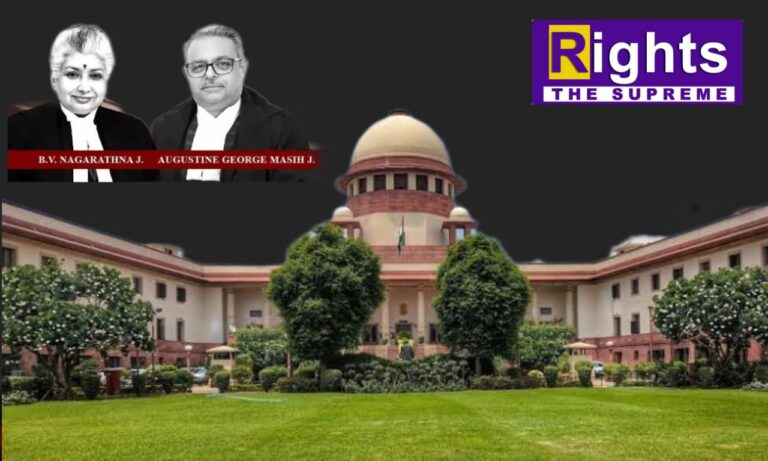In this landmark judgment Justice B.V. Nagarathna of the Supreme Court in a judgement said that empowerment of 'vulnerable wife' will make her more secure in family and made a distinction between financially independent or employed married women and those who remain at home without even an avenue to meet their personal expenses.
The court's observation came during the hearing of a petition filed by a Muslim man against the direction to pay interim maintenance to his divorced wife under section 125 of the Criminal Procedure Code (CrPC). The bench comprising Justice B.V. Nagarathna and Augustine George Masih dismissed the plea saying that law for seeking maintenance would be valid for all the women irrespective of religion. In this case court highlighted the rights of homemakers because they work entire day for the welfare of the family without any demand or anything in return. According to this case law should be secular for all the women as they face same problems regarding financial instability and can seek maintenance irrespective of religious personal laws. This is Indian married man's responsibility to financially empower their wife as they do not have any source of income to fulfill their personal needs by making financial resources available. Acknowledgement of financial stability will lead to a more prosperous and happy marriage in comparison of non-stable homemaker wives.
About the case:
The petitioner, Mohammad Abdul Samad had challenged a Telangana High Court order as they granted his wife to seek maintenance under section 125 of the Criminal Procedure Code (CrPC) but he claimed that a divorced muslim woman is not entitled for maintainance from her husband and has to invoke the provisions of the Muslim women Protection of Rights on Divorce Act,1986. During the hearing, the court observed that a Muslim woman can seek maintenance from her husband under Section 125 of the Criminal Procedure Code(CrPC) and stated that there is provision regarding "religion neutral" applicable to all married women in this act.
Justice Nagarathna also referred to the vulnerability of a married woman with regard to the "security of residence" in her matrimonial home. Most of the Indian married men do not realise the condition of their homemaker wives that they also want financial empowerment so that they can help themselves and support their family in bad times. Indian married women always feel the lack independence within them because they are not introduced to financial resources which affects the family system of the country.
Related case law:
The landmark judgement of Shah Bano case 1985, the Supreme court upheld the applicability of section 125 of the Criminal Procedure Code (CrPC)to Muslim women.
In this case, the petitioner Shah Bano was entitled to maintenance beyond the iddat period (in Muslim laws iddat is waiting period where a woman must observe after the death of the husband or divorce during which she cannot marry another man) stating that right to maintenance is a fundamental right and cannot be infringed by personal laws.
{Section 125 of the Criminal Procedure Code (CrPC) says that any person who has sufficient means to maintain himself cannot deny to maintain his wife,children and parents if they are not able to maintain themselves.}
Conclusion:
The Supreme Court's emphasized the principle of the equality and justice towards married wives which underscores the issue of financial empowerment irrespective of gender and religious norms. The court's interpretation highlights the society's reality that after many evolution we are not able to make Indian women financial stability that they can fulfill their personal needs and adds onto the country. Basically this ruling has been mandated to the provision of seeking maintenance under section 125 of the Criminal Procedure Code (CrPC)irrespective of religion showing religious neutrality.

